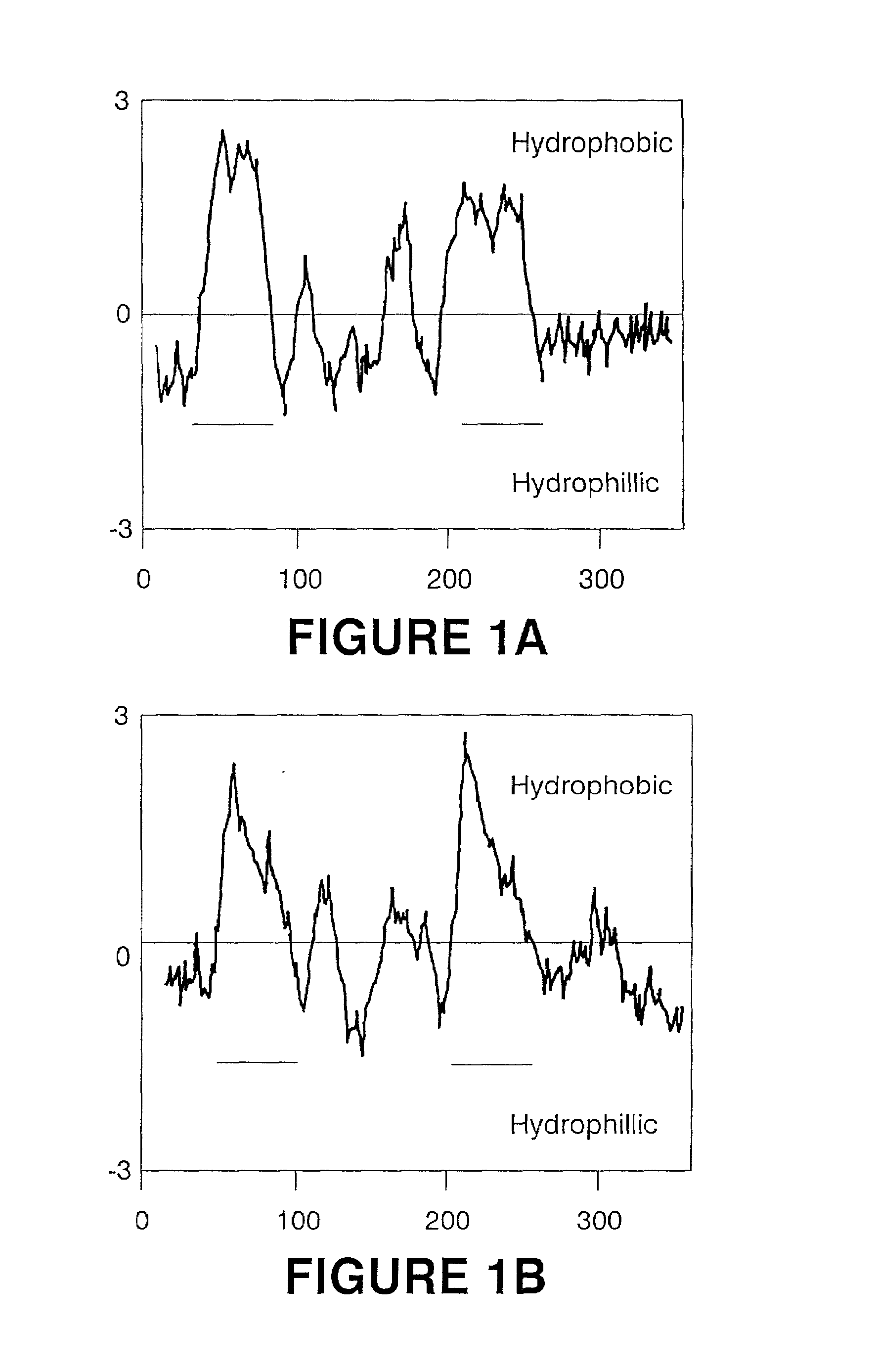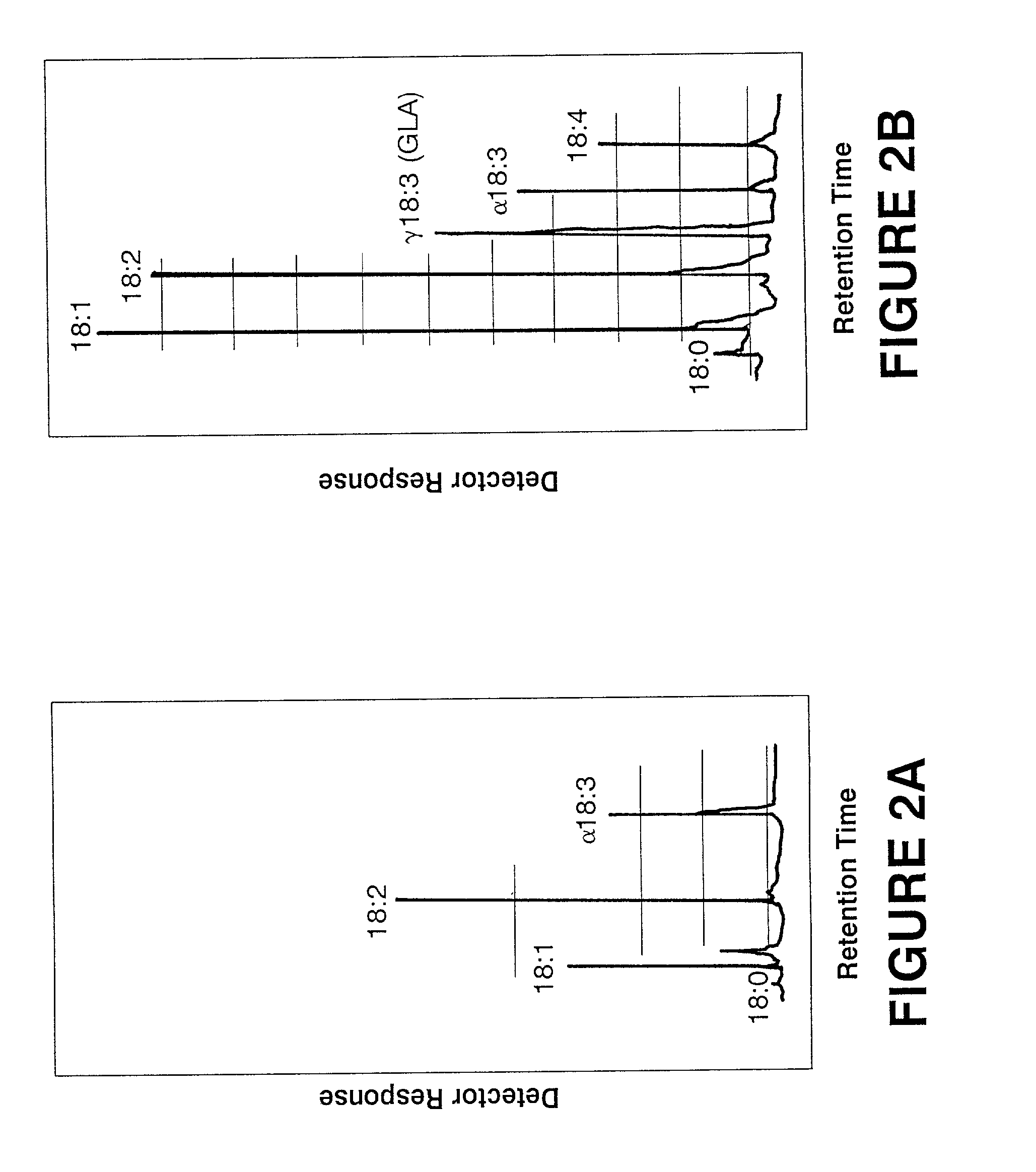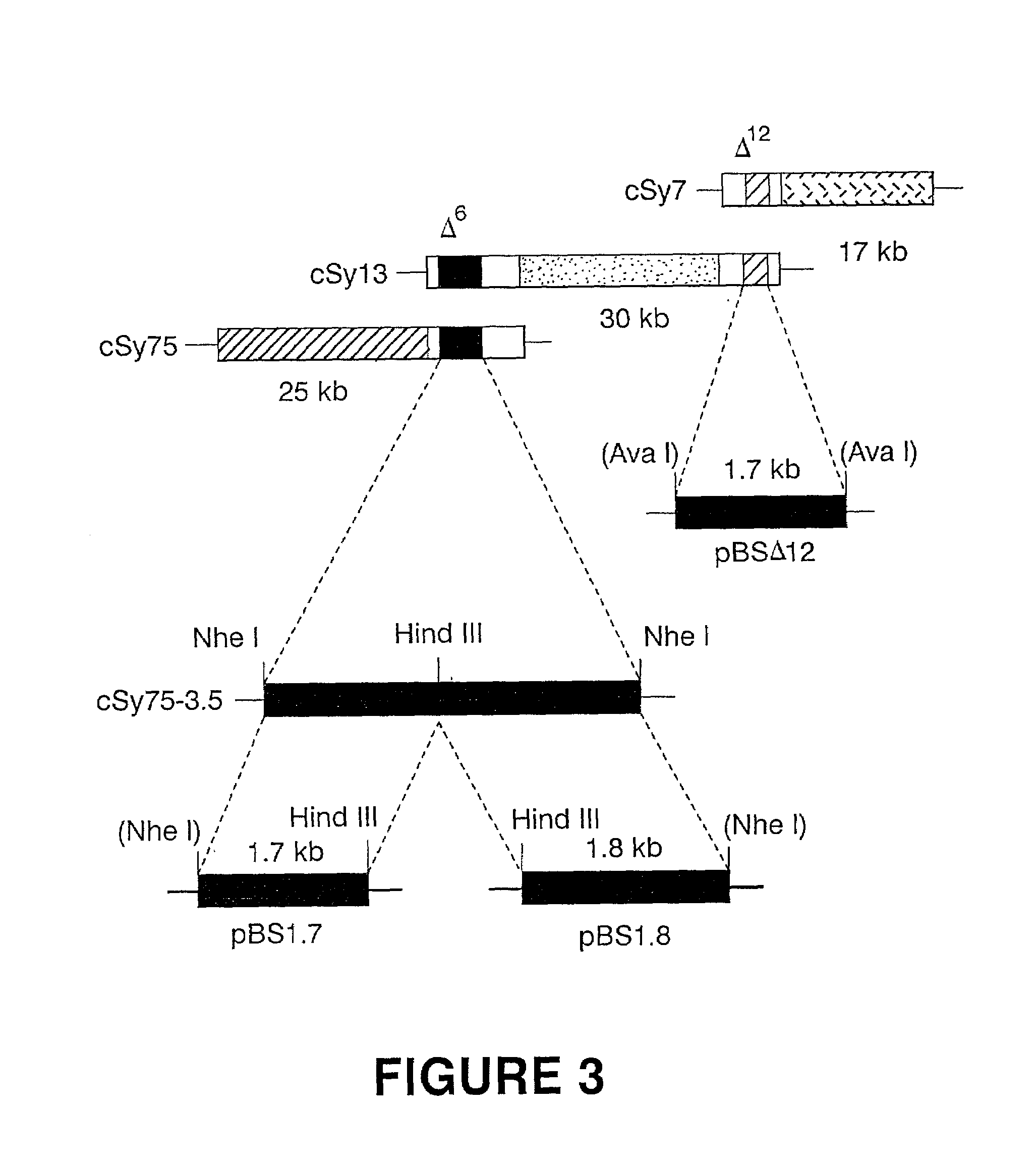Production of gamma linolenic acid by a Delta6-desaturase
a technology of delta6 and desaturase, which is applied in the field of nucleic acids comprising the 6desaturase gene, to achieve the effect of increasing the content of gamma linolenic acid
- Summary
- Abstract
- Description
- Claims
- Application Information
AI Technical Summary
Benefits of technology
Problems solved by technology
Method used
Image
Examples
example 1
Strains and Culture Conditions
[0060]Synechocystis (PCC 6803, ATCC 27184), Anabaena (PCC 7120, ATCC 27893) and Synechococcus (PCC 7942, ATCC 33912) were grown photoautotrophically at 30° C. in BG11N+ medium (Rippka et al. [1979] J. Gen. Microbiol. 111, 1–61) under illumination of incandescent lamps (60 μE.m−2.S−). Cosmids and plasmids were selected and propagated in Escherichia coli strain DH5α on LB medium supplemented with antibiotics at standard concentrations as described by Maniatis al . (1982) Molecular Cloning: A Laboratory Manual, Cold Spring Harbor Laboratory, Cold Spring, N.Y.
example 2
Construction of Synechocystis Cosmid Genomic Library
[0061]Total genomic DNA from Synechocystis (PCC 6803) was partially digested with Sau3A and fractionated on a sucrose gradient (Ausubel et al. [1987] Current Protocols in Molecular Biology, Greene Publishing Associates and Wiley Interscience, New York). Fractions containing 30 to 40 kb DNA fragments were selected and ligated into the dephosphorylated BamHI site of the cosmid vector, pDUCA 7 (Buikema et al. [1991] J. Bacteriol. 173, 1879–1885). The ligated DNA was packaged in vitro as described by Ausubel et al. (1987), and packaged phage were propagated in E. coli DH5α containing the AvaI and Eco4711 methylase helper plasmid, pRL528 as described by Buikema et al. (1991). A total of 1152 colonies were isolated randomly and maintained individually in twelve 96-well microtiter plates.
example 3
Gain-of-Function Expression of GLA in Anabaena
[0062]Anabaena (PCC 7120), a filamentous cyanobacterium, is deficient in GLA but contains significant amounts of linoleic acid, the precursor for GLA (FIG. 2; Table 2). The Synechocystis cosmid library described in Example 2 was conjugated into Anabaena (PCC 7120) to identify transconjugants that produce GLA. Anabaena cells were grown to mid-log phase in BG11N+ liquid medium and resuspended in the same medium to a final concentration of approximately 2×108 cells per ml. A mid-log phase culture of E. coli RP4 (Burkardt et al. [1979] J. Gen. Microbiol. 114, 341–348) grown in LB containing ampicillin was washed and resuspended in fresh LB medium. Anabaena and RP4 were then mixed and spread evenly on BG11N+ plates containing 5% LB. The cosmid genomic library was replica plated onto LB plates containing 50 μg / ml kanamycin and 17.5 μg / ml chloramphenicol and was subsequently patched onto BG11N+ plates containing Anabaena and RP4. After 24 hour...
PUM
| Property | Measurement | Unit |
|---|---|---|
| pH | aaaaa | aaaaa |
| pH | aaaaa | aaaaa |
| pH | aaaaa | aaaaa |
Abstract
Description
Claims
Application Information
 Login to View More
Login to View More - R&D
- Intellectual Property
- Life Sciences
- Materials
- Tech Scout
- Unparalleled Data Quality
- Higher Quality Content
- 60% Fewer Hallucinations
Browse by: Latest US Patents, China's latest patents, Technical Efficacy Thesaurus, Application Domain, Technology Topic, Popular Technical Reports.
© 2025 PatSnap. All rights reserved.Legal|Privacy policy|Modern Slavery Act Transparency Statement|Sitemap|About US| Contact US: help@patsnap.com



